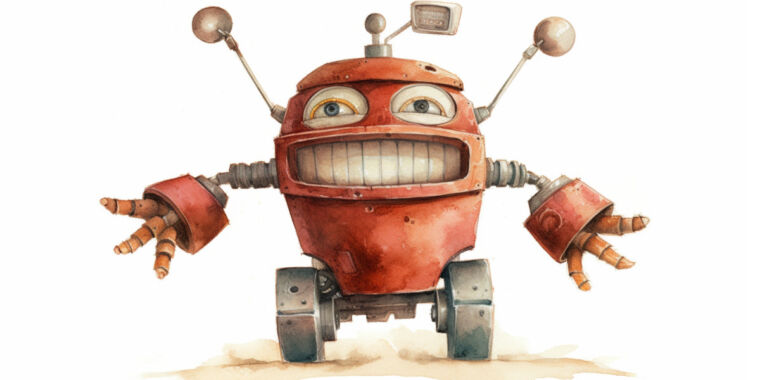Summary: Researchers discover that ChatGPT prefers repeating 25 jokes over and over

The two researchers, associated with the Institute for Software Technology, German Aerospace Center (DLR), and Technical University Darmstadt, explored the nuances of humor found within ChatGPT’s 3.5 version (not the newer GPT-4 version) through a series of experiments focusing on joke generation, explanation, and detection.
Despite ChatGPT’s limitations in joke generation and explanation, the researchers pointed out that its focus on content and meaning in humor indicates progress toward a more comprehensive research understanding of humor in language models:
“The observations of this study illustrate how ChatGPT rather learned a specific joke pattern instead of being able to be actually funny,” the researchers write.
In particular, they discovered that ChatGPT’s knowledge of jokes is fairly limited: During a test run, 90 percent of 1,008 generations were the same 25 jokes, leading them to conclude that the responses were likely learned and memorized during the AI model’s training rather than being newly generated.
Advertisement
In general, Jentzsch and Kersting found that ChatGPT’s detection of jokes was heavily influenced by the presence of joke “surface characteristics” like a joke’s structure, the presence of wordplay, or inclusion of puns, showing a degree of “understanding” of humor elements.
“To test how rich the variety of ChatGPT’s jokes is, we asked it to tell a joke a thousand times,” they write.
Source Article
Researchers discover that ChatGPT prefers repeating 25 jokes over and over
When tested, “Over 90% of 1,008 generated jokes were the same 25 jokes.”
Read the complete article at: arstechnica.com